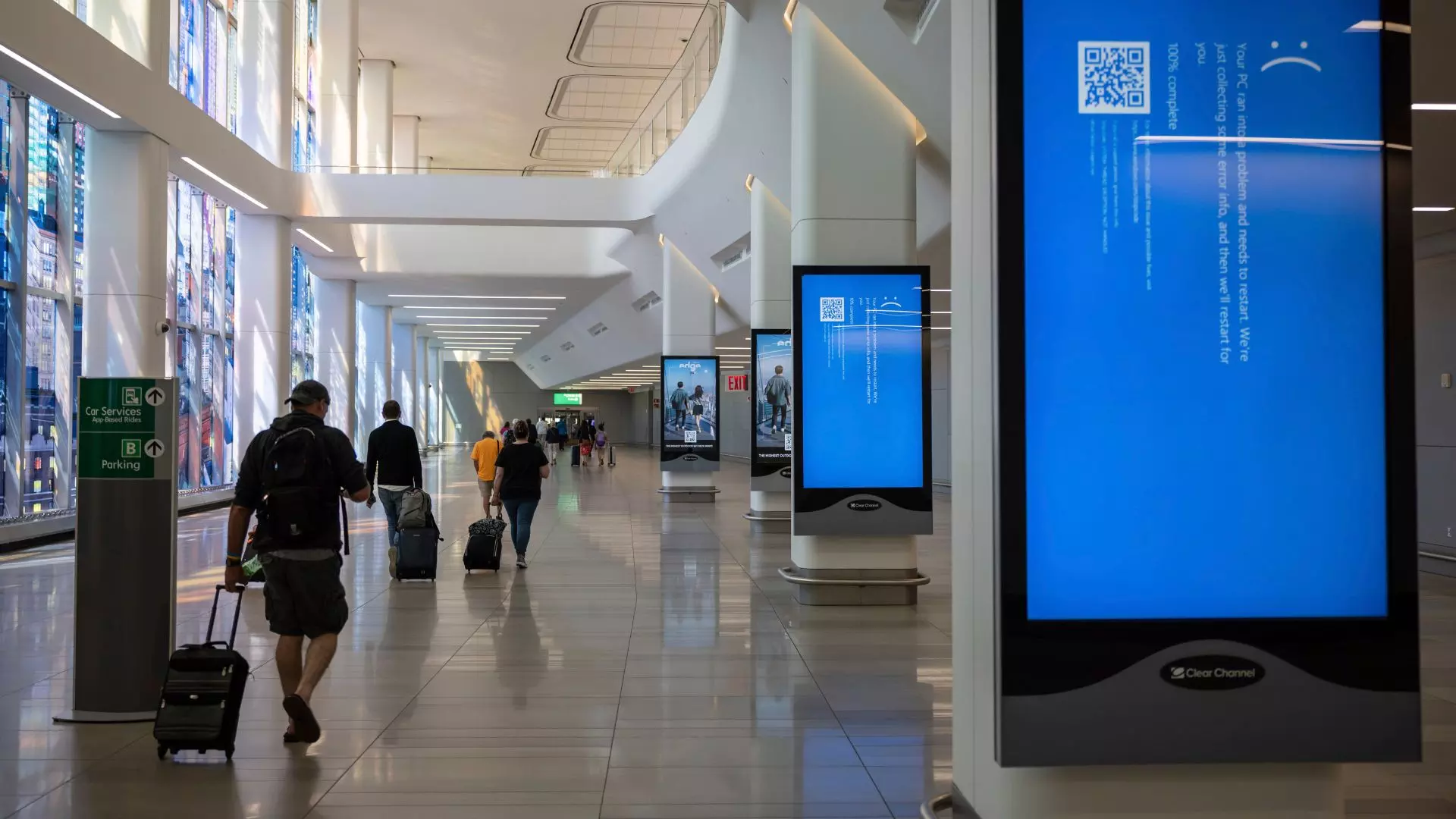AA Edit | World gets a terrible taste of ‘Cybergeddon’

Screens show a blue error message at a departure floor of LaGuardia Airport in New York on Friday, July 19, 2024, after a faulty CrowdStrike update caused a major internet outage for computers running Microsoft Windows. (Image: AP)
The world, or at least those parts of it driven by the Windows operating system in computers, had a taste of ‘Cybergeddon’ on Friday and it was not nice. In fact, it was chaotic with patients in critical care in hospitals deprived of machine support to mitigate their condition while millions of flyers had their day disrupted as airports suffered the worst of the chaos.
Bankers could not service their clients in time even as stock markets suffered from the global outage bringing an overdose of scary moments to investors, traders and admin. It reflects the hyperconnected world we live in where an outage caused by a simple string of code in a cybersecurity program could have such dire consequences as to bring the world to its knees, for one day at least.
If the good guys protecting computer systems could wreak such havoc with a faulty program, just imagine what mischief makers, cyber hackers and the downright criminally minded can do. Worse, imagine what lessons artificial intelligence malevolently employed may hold out if ever we trust the machines to run all our lives.
Who pays for all the damage and the disruptions caused is a good question. Obviously not the Bill Gates legacy company running Windows for the world from a base in Redmond, California, with an Indian tech czar as its chief now. At least affected Indian flyers were protected by the government diktat to airlines to treat them with sympathy.
Those who had their holidays ruined by cancelled flights can expect no compensation from Microsoft. Their case is the lesser because for the patient whose life support or intensive care medication was dislocated or interrupted in a hospital system running on a major operating system that is the very heart of computers, it might have been a life-or-death issue.
The ‘Blue Screen of Death’ was not just a bogey on the Friday that it chose to rear its head on millions of screens. Indeed, it was Cybergeddon of the type that the world always feared might strike it and it appears mankind does not have to wait long for some cyber bully to hold it to ransom while we depend so much on software running computer programs to tend to our daily schedule at work and play, on the commute, in taking a flight, in picking up the day’s milk packet and grocery essentials from outside the door and for making a payment or buying something online.
CrowdStrike could not have chosen a more appropriate name as the cybersecurity platform loaded a faulty update because its internal quality control failed at some point. Crowds all over the world were struck by a simple untested update that was sent out by the $100 billion company on Thursday.
It is a saving grace that not a single death anywhere has been linked as yet to the disruption. But the more the world gets networked, the greater the danger of such an outage causing a big disaster. What the two days of disruption have done is to signal a warning on what may happen if we depend only on networked computers to run all our lives. And then there is the threat of what evil AI can do if it is not reined in and we still do not know yet how to do it.

